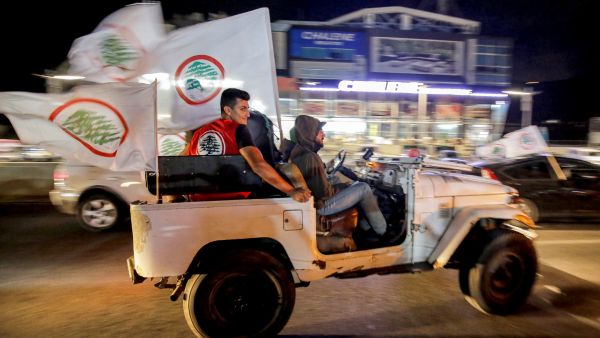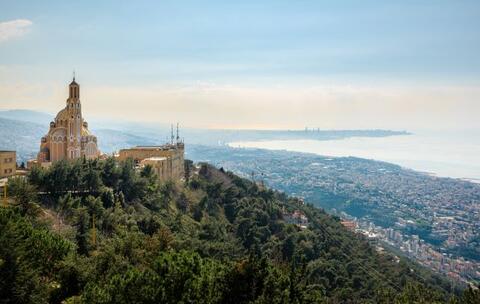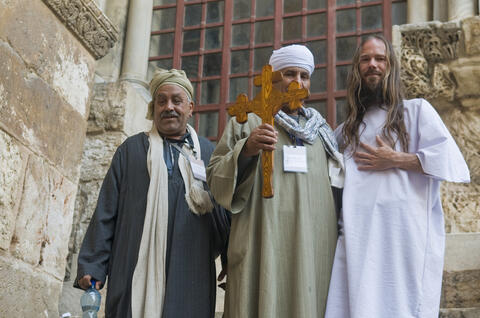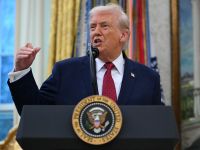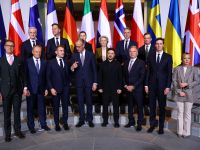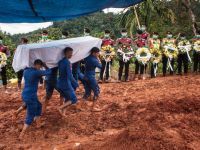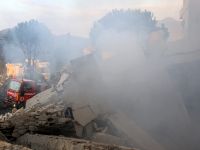By Farzad Ramezani Bonesh
Lebanon's parliamentary elections and voting on Sunday witnessed several irregularities and minor incidents such as clashes, vote buying, and power outages in some polling stations. But holding the election is an important achievement and a new turning point in Lebanese political history. Lebanese Prime Minister Najib Mikati also cast his ballot for the 128-seat parliament in Tripoli.
Major features of elections
Decrease in turnout: According to preliminary results issued by the Ministry of Interior, voter turnout was 41%. Turnout in elections was 49% in 2018. Although many reasons such as Financial inability to pay for TV appearances and the inability of a significant number of voters to return to their ancestral homes (to vote) have been among the reasons for the decline in turnouts, important economic and political reasons such as dissatisfaction and frustration are also important in changing the situation.
Change of generation in leaders and emergence of new faces: The recent election is the first real test for opposition groups and young protesters in October 2019. Although, the consolidation of power and the quota-based political system, and the control of sectarian elites over the country, has prevented the emergence of a new generation of independent currents and candidates, preliminary results also show the victory of independent candidates.
On the other hand, the change of leadership of figures like Walid Jumblatt, the leader of the Lebanese Progressive Socialist Party, and assignment of leadership to his son, the boycott and absence of former Prime Minister Saad Hariri and changes in parts of the Sunni vote, the entry of October 17 candidates into the race, are parts of changing of generation and the emergence of new faces.
Restructuring: The exact distribution of seats in the Lebanese parliament is based on tribe. In fact, Hezbollah's unwavering alliance with Amal ( Nabih Berri, the former speaker of the Lebanese parliament, seems to have remained a 'Shiite dual' is still in place. But we will see more changes on the Sunni and Christian fronts. It seems that the position of Christian and Sunni parties in parliament will be different.
Majority change: While the exact majority in the new parliament is still unknown. Parliament is more at risk of fragmentation than ever before. The role of independent representatives has become more prominent. But there may not be a clear majority.
Important challenges ahead:
Election of a new president: According to an earlier announcement by President Michel Aoun, he will leave the Lebanese presidential palace on October 31 and has no plans to run for the office.
In fact, given the background of the presidential election in Lebanon and the challenges and problems caused by the dispute over its appointment in the past, it should be said that after the parliamentary elections, the election of the president is one of the most important challenges.
In fact, the type of ruling majority in parliament and the status of supremacy in the basket of Christian parties after the parliamentary elections will affect the election of a Christian president in the coming months. It is also important to elect a president on time. If for any reason it is not possible for groups and political parties to reach an agreement and elect a new president, the country will enter another political crisis such as the crisis of electing the president of Lebanon, failing to reach the quorum and so on.
Election of a new Prime Minister: One of the other important challenges for Lebanon after the parliamentary elections is the election of a new Prime Minister. Therefore, the next parliament must immediately nominate a Sunni prime minister to form a cabinet. Although the ruling majority in parliament will have a large impact on the election of the Sunni prime minister after the parliamentary elections, the important thing is that an agreement on the formation of a new government will be reached soon after the parliamentary elections. Because the interim government will have limited powers to advance the affairs, but the challenges and issues of Lebanon are very wide.
Also, the election of the government takes months, due to the following complication of the lists' situation and the gap between the tribal groups and the body of the Sunni parties, the government will face practical limitations in facing the crisis and choosing its economic, domestic and foreign policies.
Organizing a collapsed economy: In recent years, the Lebanese economy has faced a widespread crisis. Economic and financial collapse, COVID-19 epidemic, Beirut port explosion, mismanagement, corruption, currency devaluation by up to 90%, severe inflation, severe fuel and drug shortages have left the country with a new set of crippling economic challenges.
Disruption of energy safety and food security (caused by the war in Ukraine), more than 80% of the poor population, power outages sometimes up to 20 hours a day, deterioration of the country's mobile networks and Internet are other important challenges for the country's economy. While the economic crisis continues and no positive change has taken place in this area, the next parliament will take action on the delayed reforms needed by the International Monetary Fund to reopen financial support and reduce the crisis.
The new government that came out of the parliament must also bring the country out of the crisis with extensive reforms. In fact, Lebanon needs years to overcome this crisis, structural reforms, austerity programs, negotiations with the International Monetary Fund and other institutions and countries, receiving foreign aid, and so on. This has added to the important position of the parliament and the future government more important in running the country and overcoming important economic challenges. Thanks to the cooperation of all Lebanese groups, this will not be out of reach.
Internal defense and political issues: Important divisive issues such as defense and internal security issues, such as Hezbollah weapons, are at the center of voting for the new 128-member parliament. In fact, Hezbollah was officially allowed to keep its weapons after the 1975-1990 civil war.
Proponents say that Hezbollah’s weapons are used for fighting against theIsraeli forces, countering the attacks of ISIS and militias affiliated to Alqaida in the east of Lebanon, and also defend Lebanon and consider it as a power for the country.
Opponents of Hezbollah's presence in Syria do not consider supporting Bashar al-Assad, etc., useful and consider it a blow to Lebanon's relations with Arab and Western countries. Countries that have classified Hezbollah as a terrorist organization.
In addition, other challenges such as pursuing the demarcation of the border in the Mediterranean, Lebanon's share in the Mediterranean oil and gas, the settlement of Palestinians, the reform of the election law, the type of participation of Lebanese citizens living abroad, the Beirut port bombing case, etc. can lead to conflicts in Parliament and between the country's political groups.
Modification or correction of the Taif agreement: The signing of the Taif Agreement in 1989 marked the official end of the Lebanese civil war, but after the October 2019 protests, many parties and individuals who support the changes, believe that the spread of crises and political, economic and social instability and the root of Lebanon's growing problems stemming from the Taif Agreement. Therefore, some think of removing, correcting or defining a new constitution (based on the principle of equality of individuals minus ethnicity, belief and religion) and a fundamental change in the sectarian system.
This is despite the fact that the opposition is divided and the candidates of the protest movement, if they have less than 5 seats in the next parliament, cannot guarantee significant influence. At the same time, the increase in social discontent and the decrease in the legitimacy of the system certainly provide the ground for changes in the political structure or even the Lebanese constitution. But this requires the compliant view of all currents in the future parliament.
Choosing a balanced foreign policy of the government: In fact, the government resulting from the elections and the pluralistic Lebanese society must have sufficient legitimacy in the international community. The government must immediately begin tough foreign negotiations to raise funds and reform and austerity policies. This mission is unlikely to be completed if it is not accompanied by a consensus among all parties and tribes.
Although Iran and Saudi Arabia support rival parties in the election, Lebanon could potentially benefit significantly from easing tensions between the both countries. Also in the past, there were differing views in Lebanon regarding Emmanuel Macron's visit to Lebanon, criticism of the Yemeni war in October 2021, and the stalemate in relations with some Arab countries.
Even now, challenges such as clashes with foreign powers, reducing tensions with neighbors and the Arab world, reducing hostility to Israel, looking at crises such as Yemen and Syria, US sanctions, etc. can cause differences in the foreign policy of the new Lebanese government. In fact, the art of the future government is to choose a balanced foreign policy in the national interest of Lebanon and in accordance with the wishes of all Lebanese groups.


